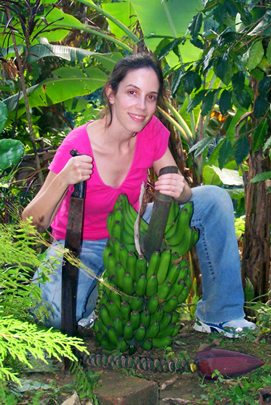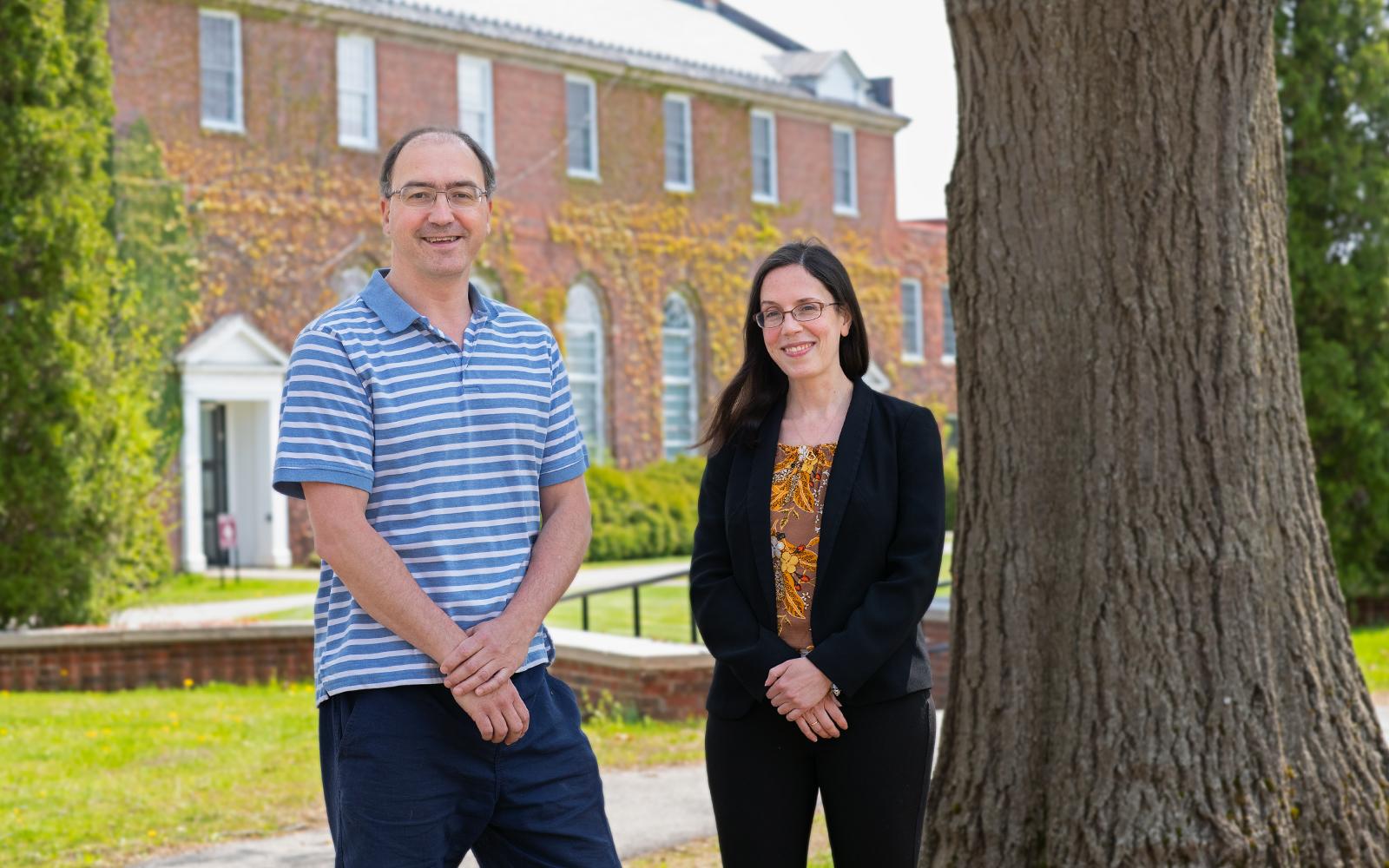Conference internships bolsters skills in relating beyond borders
 When SUNY Potsdam anthropologists Dr. Sergio López and Dr. Lydia Rodríguez plunge into field work in far reaches of Latin America, they expect discomfort. Their work requires patience; it takes months to build the trust necessary to delve into a Mayan healing ceremony—or connect with refugee populations. Routinely, they experience culture shock anew, and note the way it can stretch and strengthen the human character.
When SUNY Potsdam anthropologists Dr. Sergio López and Dr. Lydia Rodríguez plunge into field work in far reaches of Latin America, they expect discomfort. Their work requires patience; it takes months to build the trust necessary to delve into a Mayan healing ceremony—or connect with refugee populations. Routinely, they experience culture shock anew, and note the way it can stretch and strengthen the human character.
To tap this reservoir of energy, the researchers have invited SUNY Potsdam students to participate in a yearly anthropology conference that, over the course of a decade, has grown to distinction—a gathering held out of country, uniting from different regions of the world some 600 professionals and students who work with Latin American anthropological subject matter. Since 2016, Potsdam students primarily from Modern Languages and Anthropology departments have helped make the AIBR International Conference of Anthropology a reality.
The multilingual event is featured in Spanish, Portuguese, and English languages, and helps to elevate the voices of underrepresented populations. In 2023, the Wenner Gren Foundation continued its support of the effort with an award totaling $17,000 to help defray the expense of organizing the event. López and Rodríguez have raised $96,942 for the conference since 2016.

The value in the experience, López explains, lies in the potential for growth that professors—and now SUNY Potsdam students—can find when they are outside of their element and forced to navigate habitats unfamiliar to them. The encounters reveal completely new ways of seeing the global cultural mosaic, demonstrate some of the ambiguity and complexity of the world, and strengthen tools to navigate it. The conference can be formative, even life changing—as it was for Lacie Castile ’25, who interned during 2022 in Salamanca, Spain.
“Getting to go to Spain and truly immerse myself in the culture and the language was entirely groundbreaking for my degree program,” says Castile, a Spanish and Mathematics double major with a minor in public health.
“I decided to transition to translation as my career goal—because I became so interested in the stories that people of different cultures had,” she explains. “So many more doors opened to realities and cultures that I never got the chance to experience before my internship.”
Among other conference-related tasks, students help translate papers from Spanish to English, assist in organizing panels, create programs, conduct outreach, and offer language assistance. They absorb a lot of knowledge and are able to network with experts in the field.
Rodríguez is a linguistic anthropologist whose specialties include grammar and cognition, the influence of language on thought and worldviews, and the human relationship with time. She serves on the conference’s organizing and scientific committees.
“One of our goals is to connect professionals and disseminate information in the Spanish-speaking world because, traditionally, the spaces and networks for disseminating anthropological research tend to be Anglocentric. This is a space where Spanish, Portuguese, and English-speaking scholars can enter into productive dialogue. It may be hard and expensive for scholars of Latin America to travel to North American venues—and the goal of the conference is to elevate the voices of underrepresented populations in our discipline.”

López focuses on business anthropology and indigenous communities of Mexico. He co-founded the Network of Iberoamerican Anthropologists in 2002 with the goal of bringing cohesion to numerous anthropology associations that tended to be fragmented and segmented by country. The network eventually connected 8,000 scholars from universities in Latin America, Spain, Portugal, and the U.S. By 2015, the association’s strength and membership warranted the creation of a first annual conference.
“The real achievement was to create a professional association that would transcend the political borders of countries,” says López, who serves as AIBR’s president. “It was a challenge and opportunity to overcome geopolitical barriers.”

The 2023 conference, held in Mexico City from August 8 to 11, marks the first time a SUNY Potsdam student will be able to present their research. Molly Guarton ’23 will present virtually on Latin jazz. Involving more students in the conference, and positioning them to present their findings, is a key goal for the future, says López.
Article by Bret Yager
